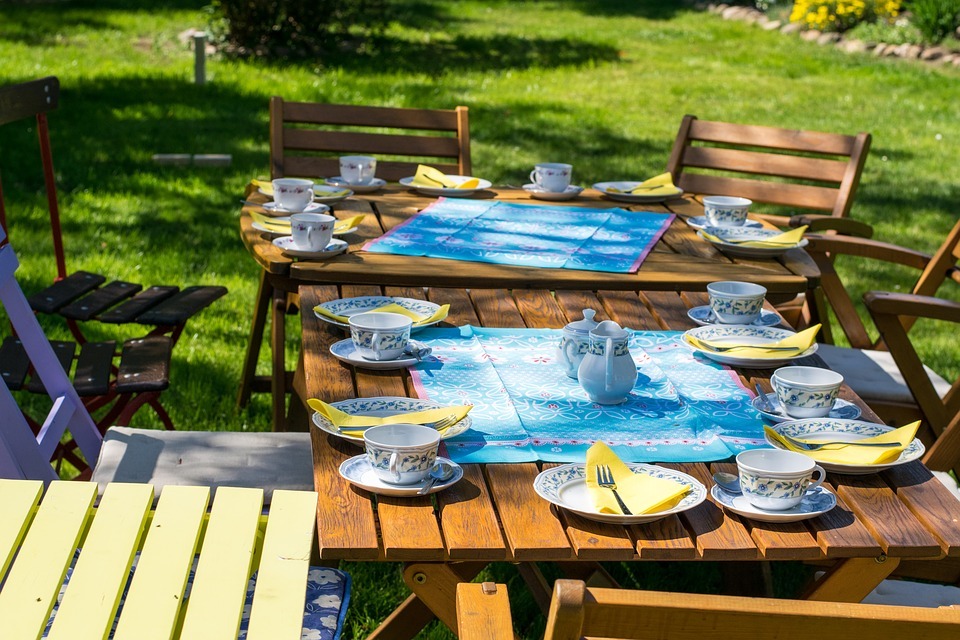How to Avoid Harsh Chemicals When Cleaning Your Oven

Ever pulled out one of those supermarket oven cleaners, taken one whiff, and thought, ‘This can’t be good for my lungs?’
Well, you’re not alone. Those sprays promise a sparkling oven, but what you actually get is burning eyes, coughing fits, and a kitchen that smells like a chemistry lab.
But there's good news: You can make your oven spotless with natural, safer alternatives. So, keep reading to learn how you can do this.
Why Chemicals Aren’t the Solution
We get it. Those chemical oven cleaners may seem like a smart shortcut. But they can irritate your lungs and trigger skin flare-ups, which is especially troubling if you have asthma or allergies.
And it’s not just you suffering. Those formulas don’t magically disappear once you rinse them. They wander off into waterways, mess with soil, and cause trouble for the local wildlife—not exactly the kind of legacy you want.
Even worse, these harsh cleaners can chew through your unit’s lining, leaving you with pricey repairs.
That’s where natural, plant-based cleaners come in. They’re just as effective at getting your oven sparkling, without all those bad side effects.
These gentler options could really change the way we all approach cleaning, making it safer, easier, and a lot more eco-friendly.
Shop for Eco-Friendly Products
Keeping your oven clean doesn’t have to come at the expense of the environment. These days, you can easily find sustainable products that clean just as well, minus the chemical cloud that makes you feel like you’ve wandered into a dodgy lab.
When shopping, take a look at the labels. GreenTag and Leaping Bunny signal that the brands you’re browsing actually support sustainability and animal welfare, not just spin a green story.
Also, look for cleaners with biodegradable formulas and ingredients you can actually pronounce. They’ll do the job without leaving behind harmful residues, and you won’t have to worry about what’s lurking on your oven walls the next time you fire it up.
Yes, eco products can cost a bit more, but that extra coin goes a long way. They’re gentler on your appliances, which means your oven will last longer and perform better.
Plus, they cut down the elbow grease, saving you time and effort. So, you can say goodbye to those back-breaking scrubbing sessions.
Try Natural Cleaning Alternatives
Do you want a simple green cleaning trick? Grab baking soda, vinegar, and lemon juice from your pantry. They might not look like much, but together, they’re the dream team for tackling grease.
Baking soda functions as a delicate abrasive, lifting gunk without damaging surfaces. On the other hand, vinegar cuts through layers of grime and neutralises odours. As for lemon juice, that’s your secret weapon for a fresh, zesty finish that makes your whole kitchen smell better.
If you want to take it up a notch, add a few drops of essential oil to the mix. You can go for lavender if you’re after spa vibes or tea tree if you want your space smelling like summer.
The best thing about these essentials is that you’ve likely already got them in your kitchen, which means you can skip those last-minute dashes to the shops.
In any case, play around with different combos and you’ll discover what works best for your oven. Who knew scrubbing away baked-on cheese could feel a little bit like a science experiment you actually enjoy?
Whip Up DIY Solutions
You don’t need a science degree for this one. Just blend one cup of baking soda with half a cup of water until it looks like toothpaste. For extra firepower against crusty grime, add some vinegar or lemon juice.
Made too much paste? No stress. You can keep any leftovers in an airtight glass container out of direct sunlight. To avoid any mix-ups about what's inside, don’t forget to add clear labels.
If you want to save money, you can make larger batches of the cleaner. Sure, it’ll get your oven sparkling, but it’s just as handy on bathroom tiles or benchtop splatters. Talk about versatility!
Mix, Slather, and Conquer
Now that you have your own trusty blend, slather this mixture across all surfaces. Then, let it sit for a minimum of 12 hours or overnight if there’s a lot of buildup.
Afterwards, remove the paste and grime using a damp microfibre cloth. If you have stubborn spots, a soft sponge is ideal for tackling those. Just remember that it needs to be firm enough to lift the dirt without damaging your unit’s finish.
Once you’ve removed the paste, spritz some vinegar to make your oven shine. Now, wipe everything down with a clean cloth, and that’s your finish line.
On the other hand, if you’re using a store-bought solution, follow the instructions label since not all products are the same. Generally speaking, you will need to leave the product for 5-10 minutes before wiping it off.
However, if your oven’s baked-on mess is beyond DIY solutions or commercial products, you can call in professional oven cleaning services.
Some Eco-conscious cleaning companies use biodegradable products and specialised equipment. So, they will handle all the heavy lifting without putting your health or the environment at risk.
Avoid the Scrub-a-thon
The easiest way to clean your oven is to not let it turn into a horror show in the first place. Luckily, sticking to a few small habits can save you hours of scrubbing later.
For example, you can pop in an oven liner to catch drips and crumbs. And when you’re cooking saucy dishes like lasagne, slap on a lid or cover it with foil to keep the splatters contained.
Don’t forget to quickly wipe down your oven after you’re done as well to save yourself heaps of hassle down the road.
Even how you cook makes a difference. So, dial the heat back a notch and keep an eye out for burning edges. Lower temperatures mean less smoke and fewer sticky splatters.
Conclusion
Who says oven cleaning has to smell like a chemical spill? And once you’ve tackled it without the toxic sprays, you’ll never go back.
So, give our tips a spin and see for yourself. You might even start looking forward to it (don’t worry; we won’t tell anyone)!




